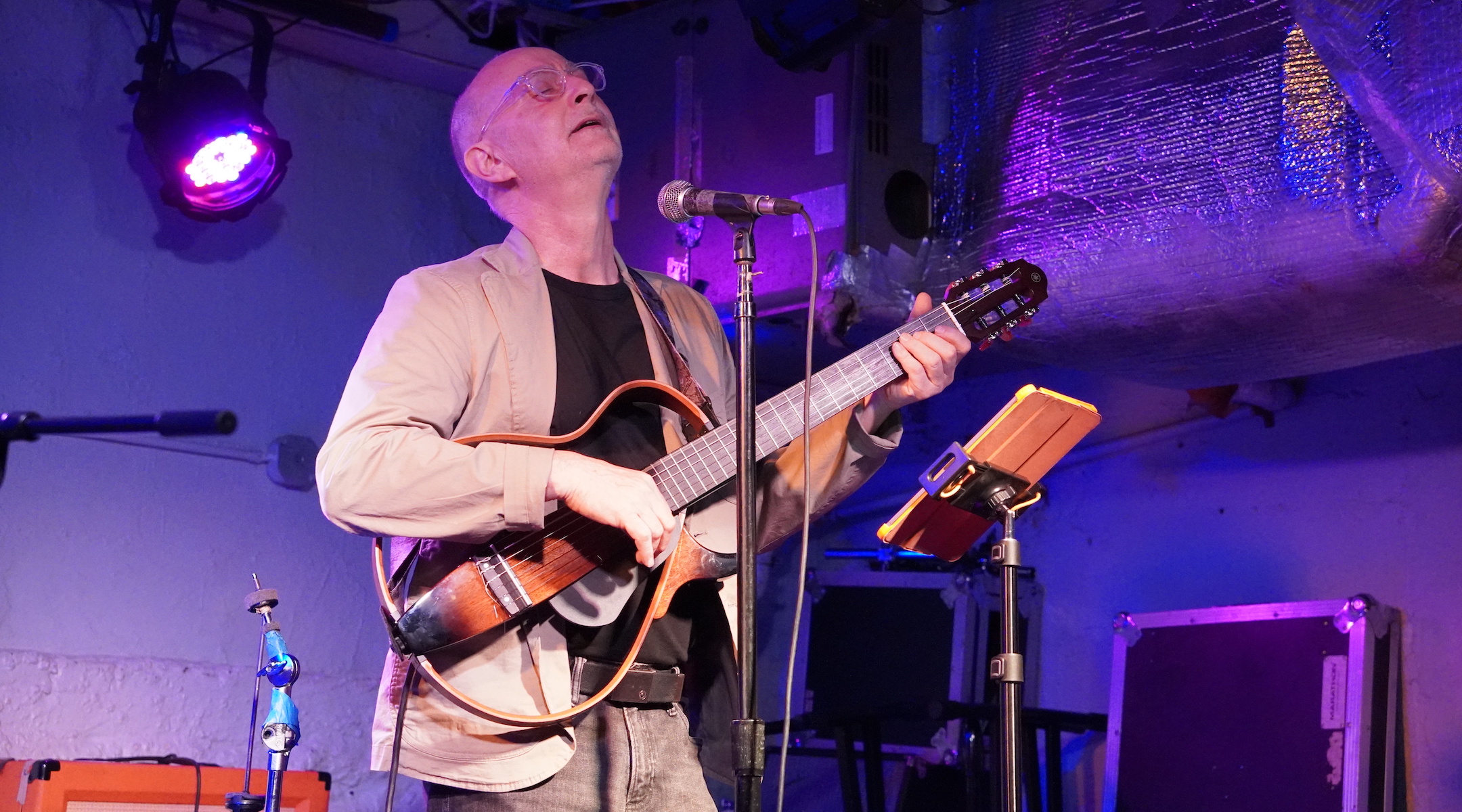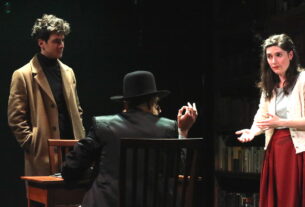(New York Jewish Week) — Rabbi Steven Blane is nothing if not an innovator: Way back in 2010, a full decade before the pandemic made Zoom services a regular part of Jewish life, Blane launched an exclusively virtual synagogue, Sim Shalom.
Among the many hats he’s worn throughout his professional life, Blane has also launched the Jewish Spiritual Leadership Institute, an online “trans-denominational” rabbinical and cantorial school. Prior to his virtual pursuits, he was a congregational rabbi — and before that, a cantor — and for many years he was also an audio producer, running one of the first companies to record audio books.
Now, at 66, Blane is pursuing yet another career: that of a professional musician. A dedicated singer and songwriter, Blane just released his tenth album, “Songs for New York Lovers,” a collection of 13 jazzy songs, many of which are inspired by the city. These days, in addition to his online Jewish ventures, Blane can be found performing live just about weekly, particularly at Silvana, an Israeli cafe and music venue in Harlem, which is run by “the greatest people on the planet,” he said.
When it comes to performing, “I can’t get enough,” Blane told the New York Jewish Week via a Zoom interview, in which he had both his guitar and a keyboard close at hand. (Ed. note: If you’re a journalist and have never had a source serenade you, I suggest you call up Blane and remedy this immediately!) “I always wanted to be a songwriter, that was my passion right out of college,” he said.
Many of Blane’s original songs reference famous New York City locations, such as “Central Park,” “The Ramble” and “Bleecker Street,” and one tune is even called “New York Is My Girlfriend.” Fittingly, Blane’s virtual background, as we spoke, depicted Central Park in the snow.
As a young man, however, Blane — who counts Leonard Cohen, Tom Waits, Billy Joel and Elvis Presley among his musical influences — thought his future lay in Nashville. In his early 20s, Blane packed up his car and started driving to Music City, where he hoped to make it as a songwriter. Along the way, however, he got cold feet and turned around. “I have slight regrets about not fulfilling that dream then,” Blane admits. “But don’t get me wrong: I’m very grateful. We’ve had a great, great life.”
Upon his return to New York, Blane gigged around the city, and even landed a role in the 1979 Broadway adaptation of a Leo Tolstoy story, “Strider: The Story of a Horse,” where he played a “gypsy.” At 30, he launched his audio production business and, from there, fell into the professional Jewish world by accident because, in synagogues, he could get paid to sing. “I was making money as a cantor,” he said. “I wasn’t selling religion, I was singing at a high level for a few alter kockers [old people] who appreciated it.”
In the ensuing years, Blane held various cantorial and rabbinic positions in the tri-state area (he was ordained by Rabbinical Seminary International in 2001) but regularly butted heads with more traditional factions in Conservative Judaism that felt playing music on Shabbat was taboo.
Eventually, Blane realized he needed to forge his own path — which led him to launch his online shul and rabbinical school, as well as his concept of “Universalist Judaism,” which, according to Blane, “is just an innate concept within its DNA that there are no barriers to Jewish worship, that there are no barriers to relationships in Jewish universalism.” All are welcome in Jewish Universalist spaces, said Blane — who, upon noticing my son’s budgerigar flying behind me during our conversation, stressed that parrots are welcome, too.
“I’m here for your Jewishness, to support you, to educate you, to be there for life cycles,” he said.
Blane began to pursue songwriting again in earnest in 2014, when he and his wife of 36 years, Carol, left the Bergen County, New Jersey home where they raised their three grown daughters and returned to New York City.
Here, Blane finds inspiration everywhere he looks. “I love the vibe, I love the energy,” he said of the city. “I walk around the city every day. My exercise now is to walk about five or six miles a day.” His favorite haunt, he said, is the Lower East Side — which is certainly a shlep from the Upper West Side one-bedroom where he and Carol live. He particularly likes the corner of Grand and Essex Streets, where his aunt used to reside.
Support the New York Jewish Week
Our nonprofit newsroom depends on readers like you. Make a donation now to support independent Jewish journalism in New York.
For Passover this year, on Wednesday evening, Blane will perform at the Knickerbocker Bar and Grill on University Place. He’ll lead a group of celebrants through a 45-minute seder before a festive meal that includes braised brisket of beef and apple walnut strudel. “It’s the funnest seder — you have all these people from the neighborhood, and a few kids,” Blane said. “Before COVID, [it was] packed to the gills. So they’ve been trying to build it up again.”
Pre-COVID, Blane was also known for his High Holiday shows at the classic Bleecker Street rock club, The Bitter End.
Usually, however, Blane keeps his rabbinic identity separate from his singer-songwriter identity — at least officially. Though he may not introduce himself onstage as a rabbi, he sees his current dual careers as informing one another. “Performing for me is davening,” he said, using the Yiddish word for prayer. “It’s a spiritual event. Everything comes together.”




